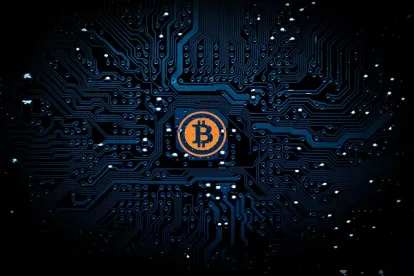I joined over 12,000 attendees worldwide at the sold-out 2021 Bitcoin conference in crypto-friendly Miami. Bitcoin luminaries including MicroStrategy CEO Michael Saylor, Wyoming Senator Cynthia Lummis, Miami Mayor Francis Suarez, Twitter and Square CEO Jack Dorsey, as well as many others, addressed a packed conference center in Miami’s artistic Wynwood neighborhood.
The large number of attendees confirmed the conference's overarching message of the rising strength and growth of the Bitcoin network. This year’s conference was six times greater than the last Bitcoin conference that hosted 2,000 Bitcoin enthusiasts in 2019. While Bitcoin started from a small group of cypherpunks a little over a decade ago, a growing industry that helps people and institutions acquire, hold, transfer, and trade Bitcoin, as well as other crypto-assets, was well represented and spoke volumes to the increasingly mainstream Bitcoin user base.
Although Bitcoin and its proponents are becoming progressively mainstream, the Bitcoin community has not strayed from its anti-authoritarian and pro-civil liberties roots. In that regard, former representative Ron Paul and other speakers rallied against central banks, unchecked money printing, and encroachments on freedom of speech, personal privacy, and property rights. Pro skateboarder Tony Hawk told his own compelling story of bringing the skateboarding counterculture into the mainstream by staying true to his craft. While the Bitcoin network continues to expand its base, the conference speakers and the audience’s enthusiastic reaction to them showed that the Bitcoin community remains strongly committed to its founding values rooted in personal sovereignty and economic freedom.
Consistent with the Bitcoin network’s growth, another theme from the conference was that Bitcoin is for the billions—not just the billionaires. While much of the innovation and adoption in the Bitcoin industry has come from the United States, this crypto asset gives billions of unbanked people in struggling economies around the globe an opportunity to store and send value anywhere in the world without censorship or exorbitant remittance fees. Indeed, for those in struggling countries who are forced to use fiat currencies debased by the unpredictable whim of corrupt regimes, the ability to store, send and receive value in an easily transferrable digital bearer asset with a fixed supply that cannot be censored or confiscated can be lifesaving.
Jack Dorsey underscored this humanitarian case for Bitcoin during his appearance. He set an ambitious goal for his company Square to make Bitcoin the native currency of the Internet. To help meet that goal, Dorsey and other panelists, including Paxful CEO, Ray Youssef, highlighted their work to encourage the adoption of Bitcoin in Africa and other developing parts of the world. Dorsey also addressed scrutiny over Bitcoin’s consumption of energy by noting that it actually incentivizes the use of renewable, stranded or otherwise wasted energy. A censorship protest during Dorsey’s discussion grabbed a great deal of media attention. But the real message from Dorsey’s address was that making Bitcoin easily accessible, particularly to the unbanked, is his life’s most important work.
The end of the conference further solidified the message of Bitcoin’s global adoption, especially in the developing world, when the President of El Salvador announced legislation to make Bitcoin legal tender in his country of 6.4 million. Under this legislation, El Salvador would also keep Bitcoin on its balance sheet. If this legislation passes as expected, El Salvador would become the first nation on the planet to formally accept Bitcoin in this manner. While 2021 has already seen a wave of institutional Bitcoin adoption, the second half of this year may indeed also see formal adoption by governments. Miami Mayor Suarez also confirmed his continuing efforts to have his city accept Bitcoin and offer its employees payments in the asset. With the prospect of governmental adoption around the corner and ongoing institutional adoption, the Bitcoin network is growing stronger than ever.
Bitcoin’s energy usage also generated a great deal of discussion at the conference. Kevin O’Leary, best known for his appearances on CNBC’s Shark Tank, moderated a pointed session with CEO’s of publicly traded Bitcoin miners. O’Leary explained how institutions are hesitant to invest in Bitcoin due to resistance from Environmental Social and Corporate Governance (ESG) committees. While O’Leary invited the miner CEOs to offer a solution to this issue, there were no simple answers. One idea, which drew a raucous rejection from the crowd, was to create a separate classification and pricing structure for Bitcoins that have been sustainably mined. However, a majority of the 21 million Bitcoin to ever be created has already been mined, and one mining CEO was skeptical that companies would actually pay a premium for Bitcoins with sustainability credentials. Like all new technologies including agriculture, industrialization, and the internet, crypto-assets like Bitcoin have increased humankind’s energy consumption. Convincing institutions that Bitcoin’s new technology incentivizes renewable energy usage and presents a more energy-efficient financial structure than traditional banking remains a challenge.
Bitcoin micropayments and layer two solutions like the Lightning Network were other themes at the conference. The Lightning Network promises to securely process Bitcoin transactions in fractions of a second off of the main Bitcoin blockchain without the higher miner fees and longer processing times the main Bitcoin blockchain requires. Instead of being denominated in fractions of a Bitcoin, micropayments are denominated in Satoshis or “Sats,” which each represent a one hundred millionth (.00000001) of a whole Bitcoin. As the Lightning Network matures, micropayments are no longer impractical and can become incorporated in various applications, including social media and gaming. For example, the conference had an E-Sports arena where gamers competed to win “Sats” sent over the Lightning Network. The growing incorporation of crypto assets like Bitcoin into electronic gaming and social media will continue to be a major trend. As this occurs and micropayments become more common, expect to hear more about the price of Bitcoin transactions denominated in “Sats.”
You cannot discuss all of the exciting developments in Bitcoin and other crypto-assets without addressing regulations and regulators. The appearances of U.S. Senator, Cynthia Lummis (Wyoming), Representative Warren Davidson (Ohio), former USFTC Chair, Chris Giancarlo, Mayor Francis Suarez, and Miami Dade County Commissioner Danielle Cohen Higgins all touched on this important topic. These panelists expressed support for the idea that Bitcoin and governments can co-exist. Because of how quickly blockchain technology is evolving, it is crucial for lawmakers and regulators to be educated on the technology. Importantly, Senator Lummis and Representative Davidson claimed that current efforts by lawmakers in Washington to understand and appropriately regulate crypto assets like Bitcoin are bipartisan.
All new technologies pose challenges for mainstream adoption and the Bitcoin blockchain is no exception. Millions and perhaps billions of people worldwide will be adopting Bitcoin as cell phone wallets and user-friendly payment and custody applications for the asset become ubiquitous. Technologically savvy businesses are seeking to interact with this asset but may also have to also address a litany of “Know Your Customer” (KYC), Anti-Money Laundering (AML), and Bank Secrecy Act regulations, ESG issues, securities regulations, and taxation issues.




 />i
/>i
